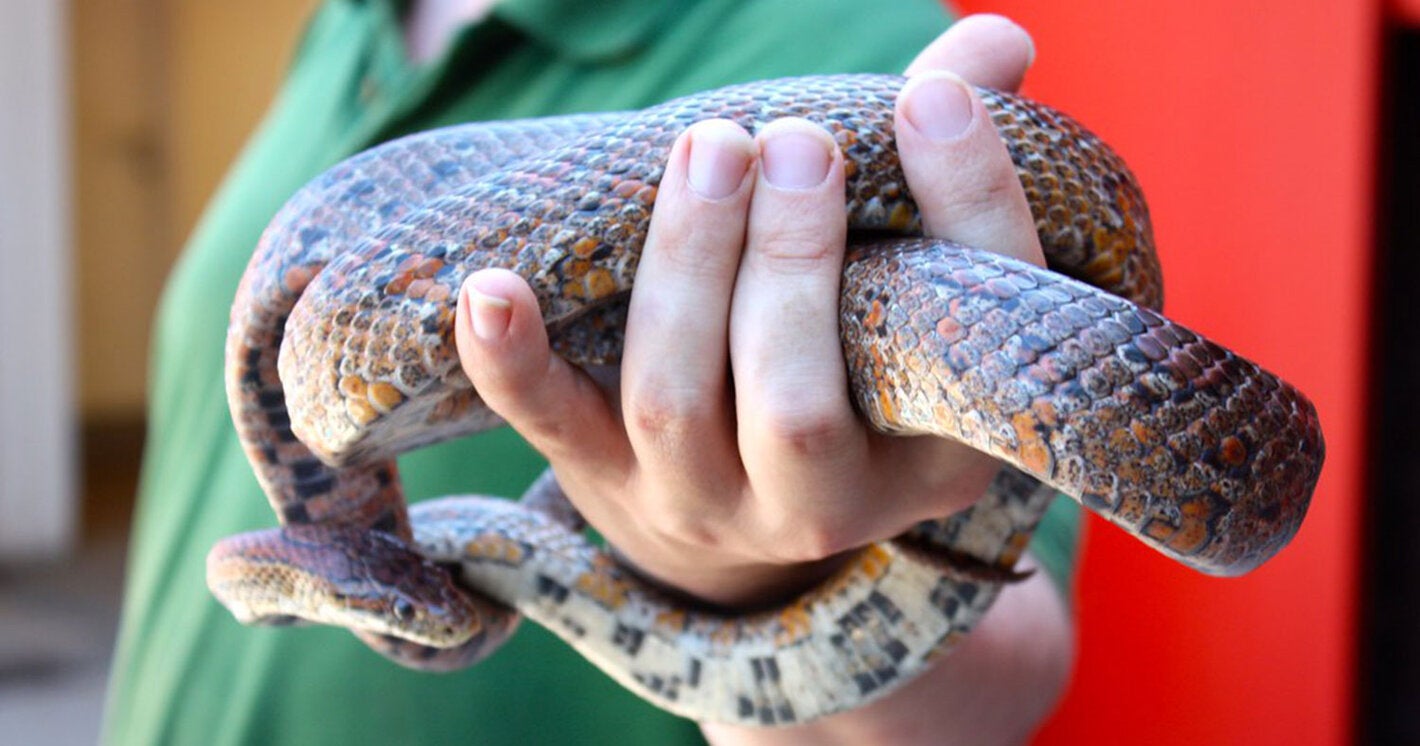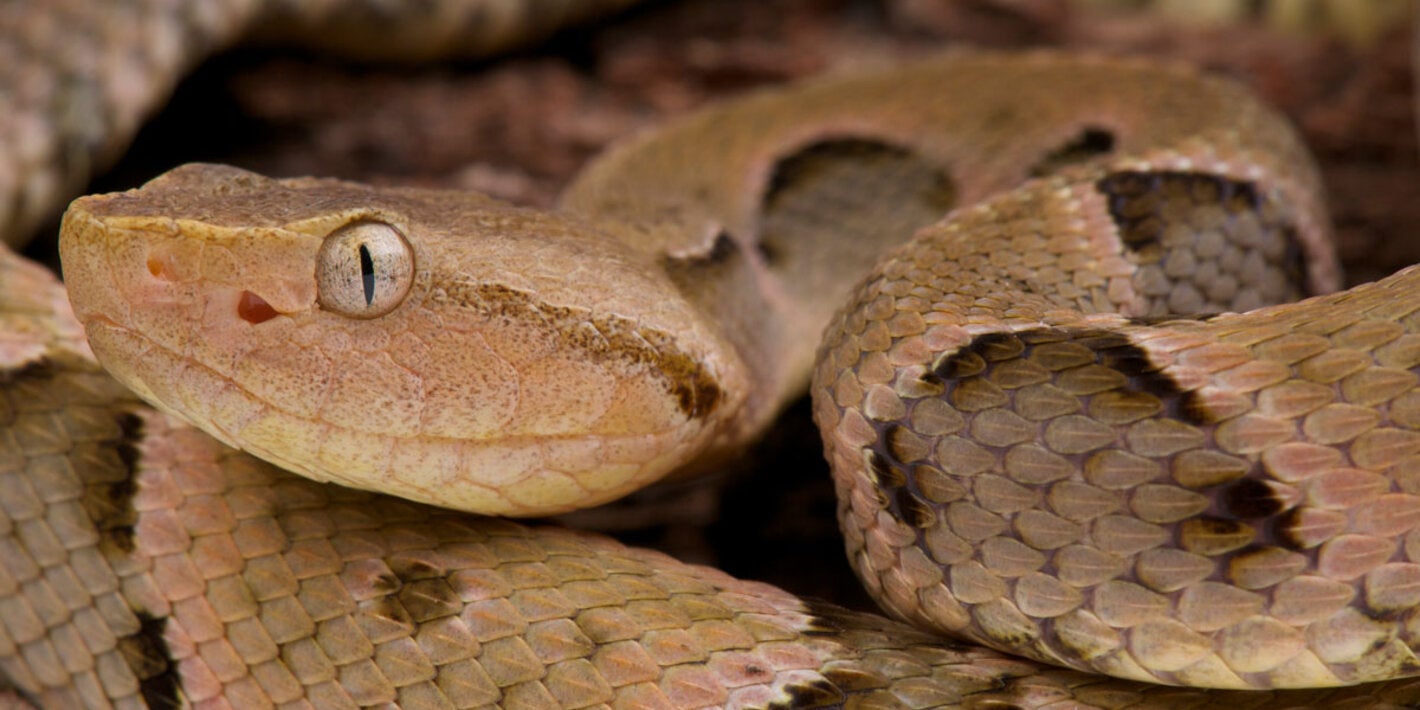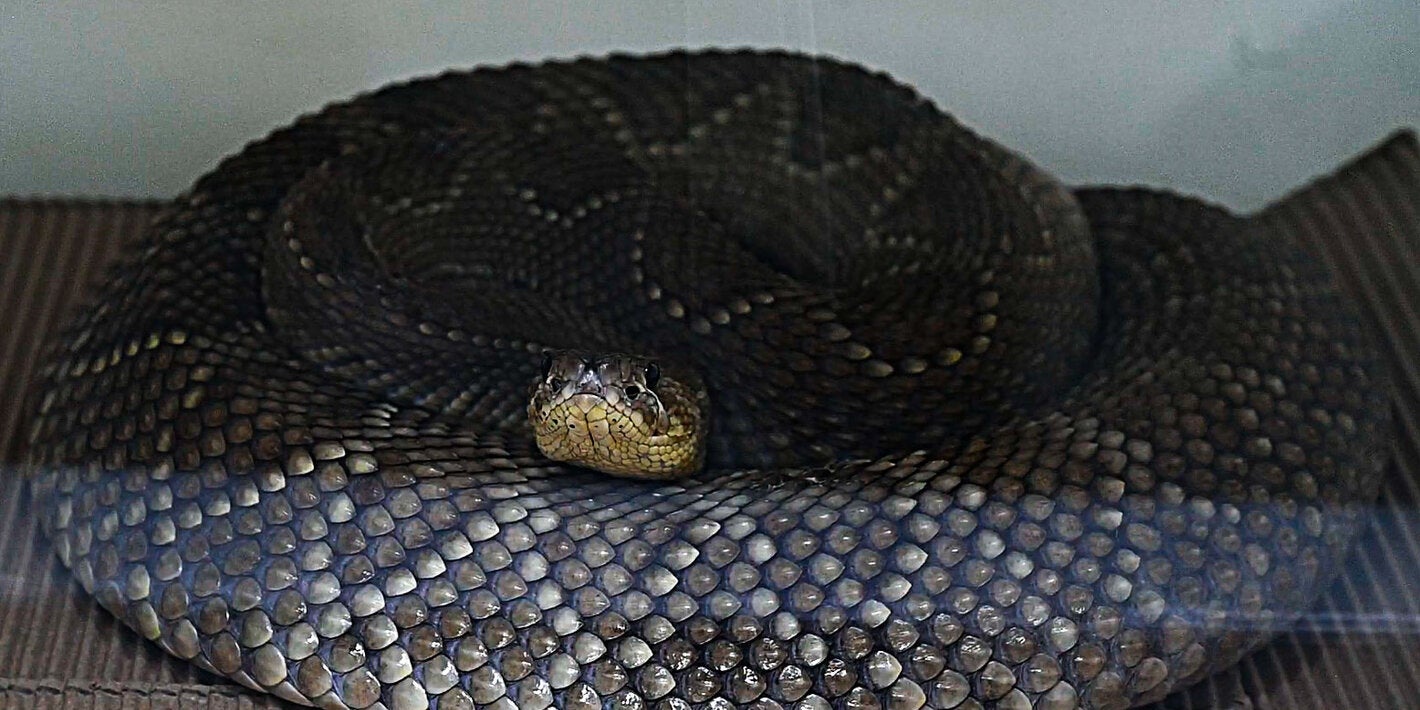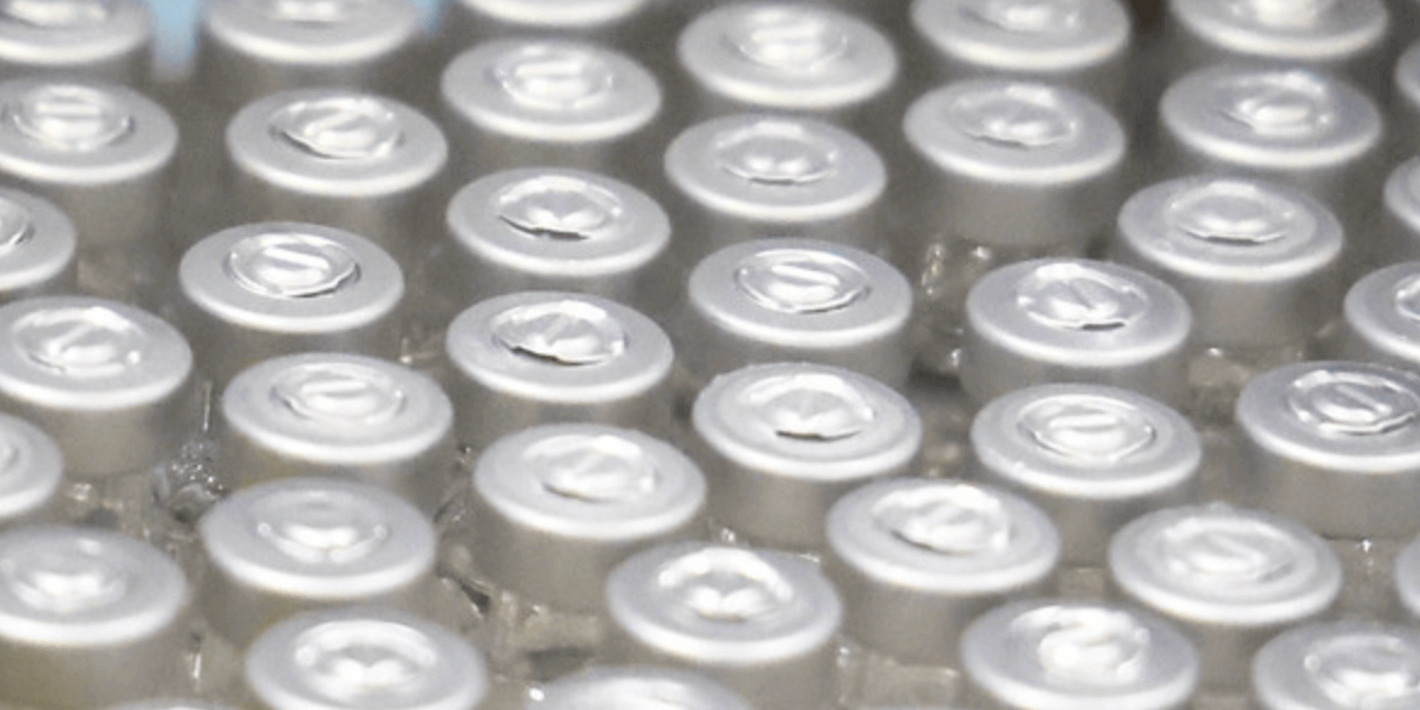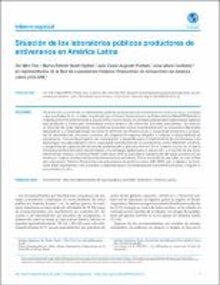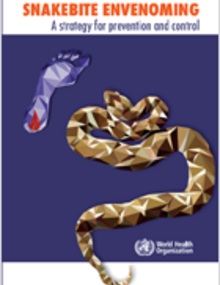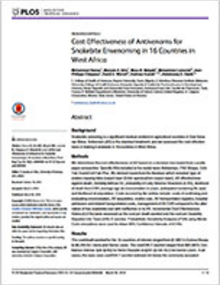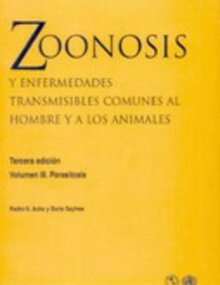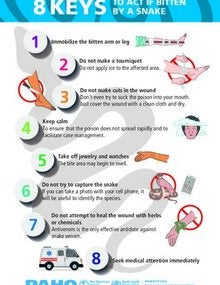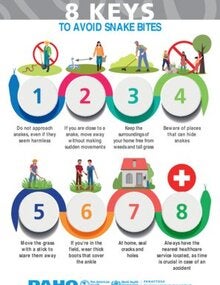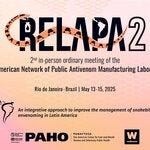Envenoming from poisonous animal bites is a serious public health problem in Latin America.
The sequelae and disabilities caused above all by snakebite envenoming, in addition to representing a health problem, have social and economic implications due to the affected patients' inability to continue working.
An estimated 57,500 cases of snakebite envenoming occur each year in the Americas. As for envenoming from scorpion bites the number of cases is higher since Brazil and Mexico alone report approximately 120 thousand and 300 thousand cases each year, respectively.
Recognizing the impact of poisonings on vulnerable population groups, WHO prepared a global strategy for the prevention and control of ophidic poisonings. PAHO, through PANAFTOSA, has assumed the coordination of these actions in the Americas, with the aim of supporting national governments.
In 2019, a cooperation network of public laboratories manufacturing antivenoms in Latin America (RELAPA) was created under the coordination of PANAFTOSA. The network aims to strengthen these laboratories and increase the availability and accessibility of effective and safe antivenoms throughout the Region, in addition to promoting cooperation and the exchange of information among the laboratories of the network.
Strategic Partners


